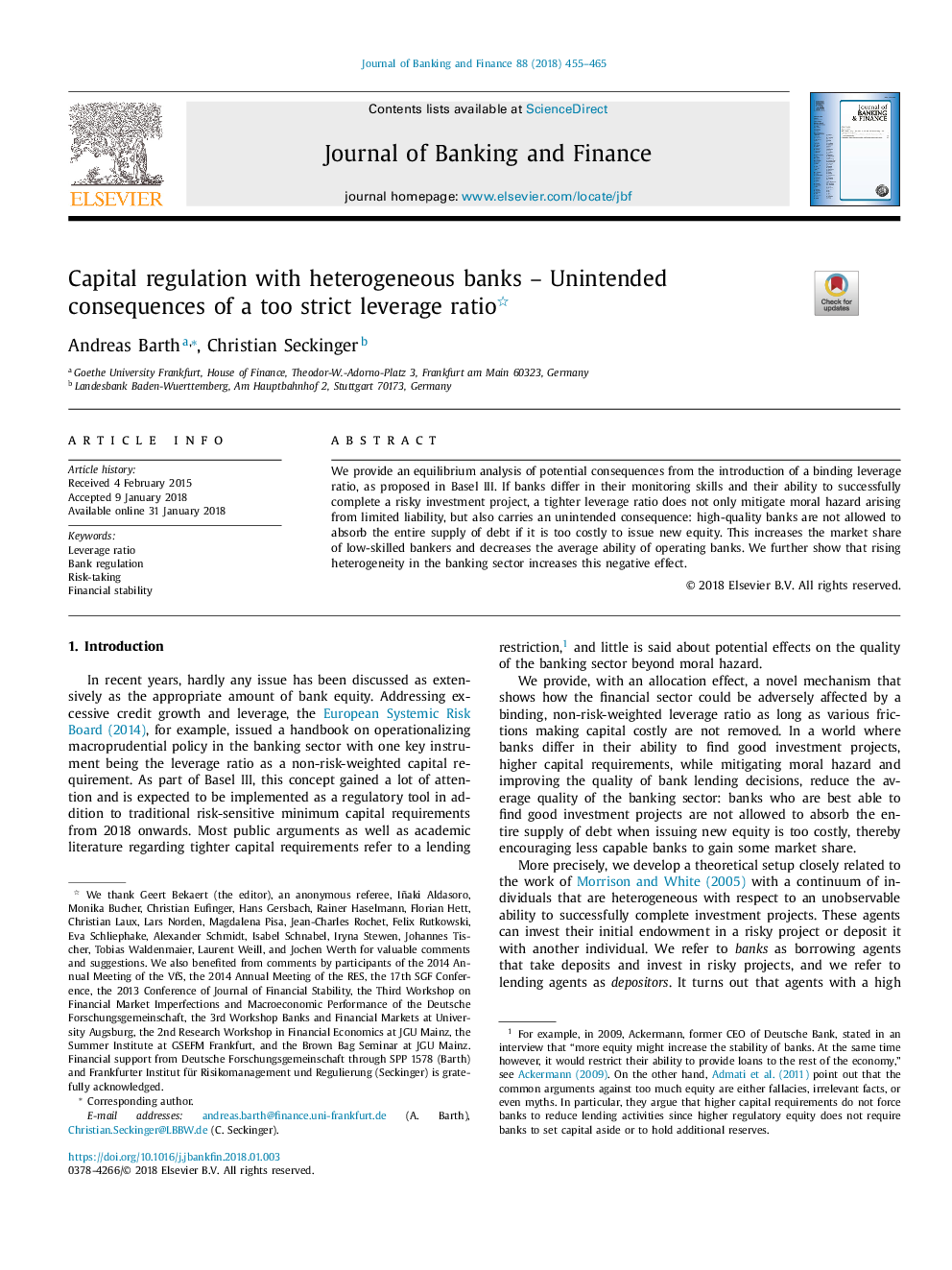| Article ID | Journal | Published Year | Pages | File Type |
|---|---|---|---|---|
| 7356691 | Journal of Banking & Finance | 2018 | 11 Pages |
Abstract
We provide an equilibrium analysis of potential consequences from the introduction of a binding leverage ratio, as proposed in Basel III. If banks differ in their monitoring skills and their ability to successfully complete a risky investment project, a tighter leverage ratio does not only mitigate moral hazard arising from limited liability, but also carries an unintended consequence: high-quality banks are not allowed to absorb the entire supply of debt if it is too costly to issue new equity. This increases the market share of low-skilled bankers and decreases the average ability of operating banks. We further show that rising heterogeneity in the banking sector increases this negative effect.
Related Topics
Social Sciences and Humanities
Economics, Econometrics and Finance
Economics and Econometrics
Authors
Andreas Barth, Christian Seckinger,
